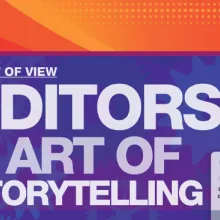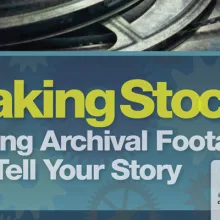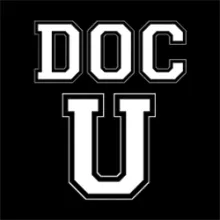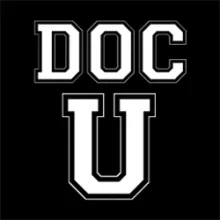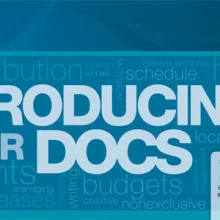Great documentaries are made, not born, and the place where that happens is in the editing room. A good editor can save a documentary director's neck; a great one can make a director look like a genius. So, who are these saviors and alchemists and what special storytelling skills do they have that filmmakers can benefit from?
Seminar
Sound and music are critically important ingredients in any documentary's success, but are all-too-often overlooked or neglected. This intensive workshop will discuss best practices and creative possibilities in audio from the beginning of your filmmaking process to the end: starting with location audio and sound design, through original music and licensing, and culminating in the final mix and mastering. Filmmakers and industry experts will give practical advice and share their knowledge to give you the tools for creating the best soundscape for your film.
Securing funding for your documentary is a challenge for filmmakers at all stages in their career. Documentary filmmakers must embrace various and evolving strategies for securing revenue. But funding institutions can also be valued partners in the filmmaking process.
Documentary filmmakers are faced with the challenge of presenting large quantities of complex data in a visually interesting way. Graphics and animation can provide an engaging way to achieve this goal. Well conceived graphics not only get your point across in your story, they can also form the foundation of the branded elements for your film.
Documentaries succeed when viewers feel a connection to their subjects. Archival footage can provide the means to delve deep into the stories and history of a film's characters by bringing the past to life and contextualizing current events. Powerful moments, iconic scenes, and historic figures lend their voice to the message in your film. Whether you're making a historical documentary, referencing a current event, or doing an in-depth profile, archival footage can connect the dots and forge a connection with the viewer.
How you release your doc—and how audiences see it—have changed dramatically in the past decade, offering filmmakers with more and more ways to connect audiences with their films. What hasn't changed is the value an experienced publicist can bring to your team as you try to get the attention of critics, bloggers, influencers and viewers, and perhaps pick up an award or two along the way.
Last year, an IDA-led coalition of filmmakers achieved a historic exemption in the Digital Millenium Copyright Act (DMCA) that allows documentary filmmakers to "crack" digital encryption on certain types of media (including "ripping" DVDs). What does it mean to claim fair use and how do you do it? What does the DMCA prohibit you from doing, and what does it allow you to do? What are the parameters for knowing when your access and use of copyrighted content is allowable under fair use, and covered by this exemption? In this special edition of Doc U, we will explore how to make fair use responsibly, and how to safely make use of the DMCA exemption for doc filmmakers.
The last few months have seen a number of shifts in the broadcast landscape for nonfiction programs. CNN launched CNN Films, upping the network’s commitment to long format documentaries. Participant Media acquired the Documentary Channel and Halogen TV, to be re-branded and launched this summer as a new channel featuring scripted and nonscripted programming, and LA’s KCET, the nation's largest independent public television station, has merged with Link TV creating KCETLink, a new transmedia independent network that acquires, produces and distributes provocative global programming. With these new ventures, and other evolving players on the scene, we'll take a look at the outlook for docs on TV.
You've run a fundraising campaign, used every favor, worked long hours, and now you're ready to get your film out into the world. Film festivals are an important and productive outlet for getting your film seen, building buzz, and hopefully locking distribution. But with ever more festivals crowding the calendar, how do you decide which festival is best for your film?
From original concept, fundraising, and production to festivals, distribution, PR and outreach, one can't argue that the documentary producer’s job description is varied. At every level from executive down to assistant, a good producer knows how to anticipate the needs of a director and crew--all usually on a tight schedule and an even tighter budget. Whether you’re bringing your own concept to life or jumping in mid-stream to save a doc in trouble, a good producer must bring a vast array of talent and expertise to the project.
